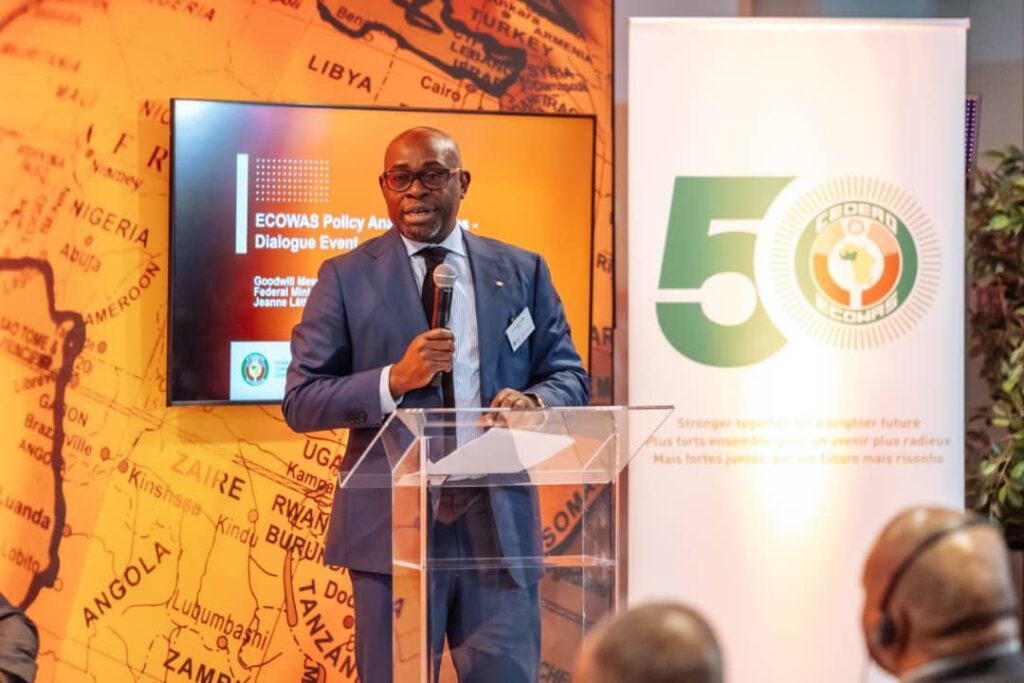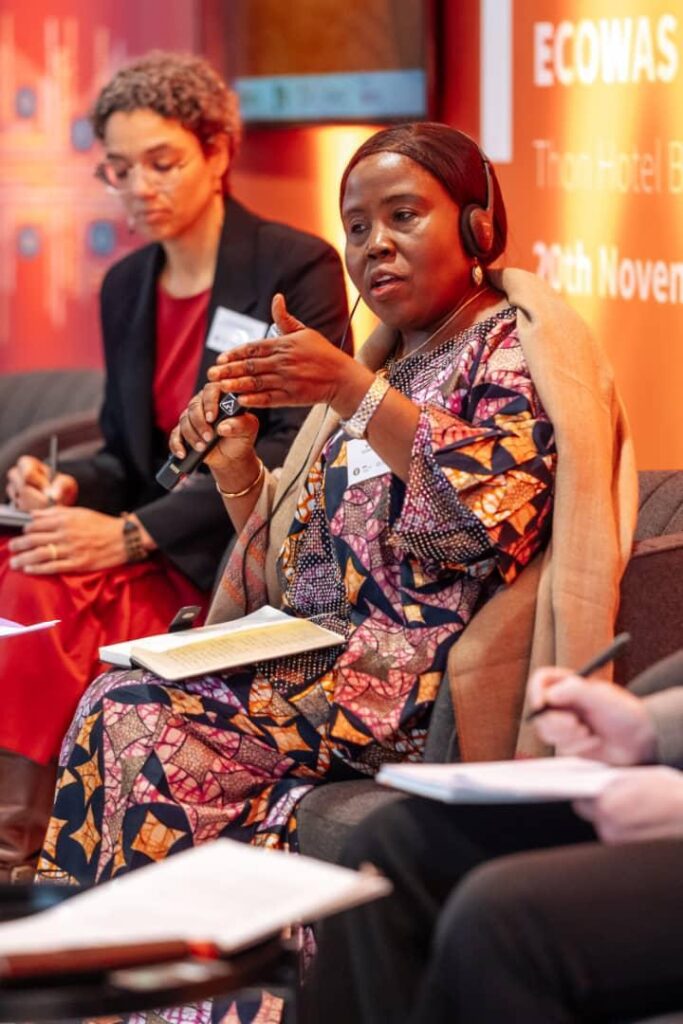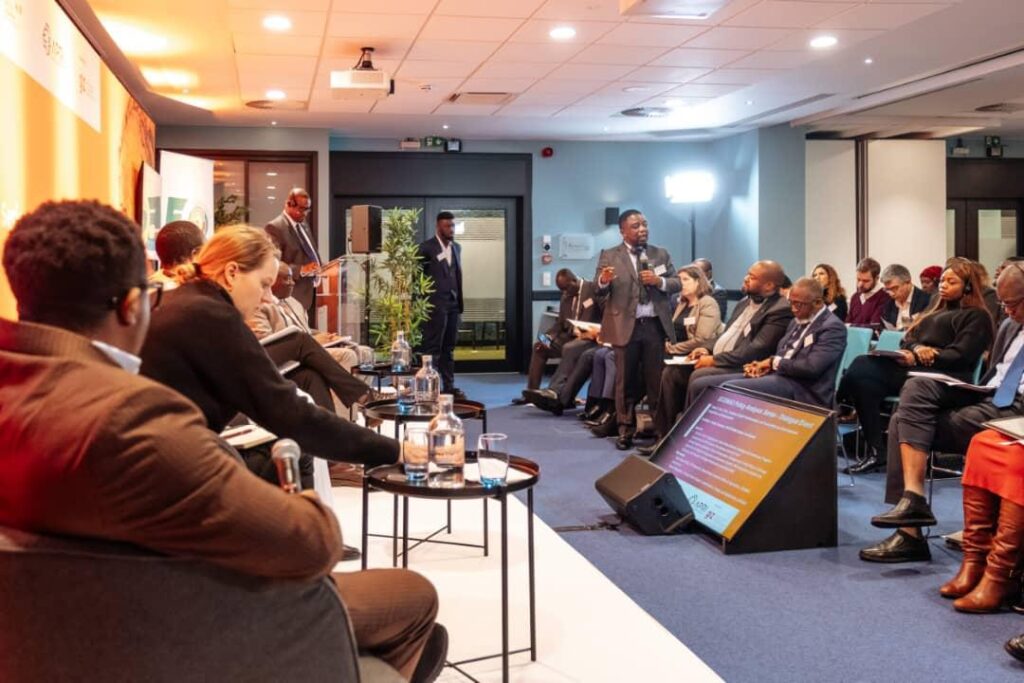Africa Policy Research Institute (APRI) Host High-Level Brussels Dialogue on 50 Years of ECOWAS Achievements.
By Raymond Enoch
In a deliberate move to shift the golden jubilee of ECOWAS from mere commemoration to critical reflection, the Africa Policy Research Institute (APRI) on Thursday, 20 November 2025, convened an exclusive high-level dialogue in Brussels, Belgium, bringing together some of the most influential voices shaping West Africa’s regional project from within and outside the continent.

Hosted in the diplomatic capital of Europe, the closed-door Brussels Dialogue assembled a rare mix of actors: members of the diplomatic corps of ECOWAS Member States, representatives of key regional bodies such as the African Union, COMESA and UEMOA accredited to Brussels, independent researchers, ECOWAS technical and financial partners, journalists and African civil society stakeholders living in Europe. The event offered them a unique opportunity to interrogate—not just celebrate—five decades of ECOWAS achievements.

Unlike standard anniversary conferences built around official speeches and communiqués, the Brussels Dialogue was anchored on 14 independently researched, evidence-based articles commissioned by APRI. Authored by a diverse pool of scholars and policy experts, the articles assess ECOWAS’ track record in strategic domains including peace and security, free movement of persons, climate change, gender equality, infrastructure development, energy, economic integration and social inclusion.

Supported by the Government of the Federal Republic of Germany, the initiative was designed to give policy stakeholders structured access to independent analysis and to encourage frank, forward-looking exchanges on how ECOWAS can reposition for the next 50 years. Participants were invited not only to react to the findings of the articles, but also to test their own assumptions against the data and narratives presented by the researchers.
The hybrid dialogue was organised around three substantive panels that mirrored the thematic thrust of the articles: Peace and Security; Economic Integration, Energy and Infrastructure; and Social Inclusion and Gender. Through these panels, speakers and discussants explored how ECOWAS has navigated recurring coups and democratic reversals, managed cross-border mobility and trade, responded to climate and energy transitions, and integrated gender and social protection into regional policy frameworks.
The event was officially opened by H.E. Ms Damtien Tchintchibidja, Vice-President of the ECOWAS Commission, who set the tone for a candid and evidence-driven conversation on the Community’s past and future. Her remarks followed a welcome address by H.E. Dedou Hemou, Permanent Representative of ECOWAS to Brussels, who underscored the symbolic significance of holding such a reflective dialogue in Brussels, and a solidarity message from Ms Jeanne Latt, Representative of the German Federal Ministry for Economic Cooperation and Development, reaffirming Germany’s support for ECOWAS’ integration agenda and for independent policy research.
By convening this Brussels Dialogue around independently produced articles and a multi-stakeholder conversation, APRI has effectively positioned itself as a bridge between research, diplomacy and regional policymaking—offering ECOWAS and its partners a distinctive space to take stock of 50 years of integration with a clear eye on the next half-century.









